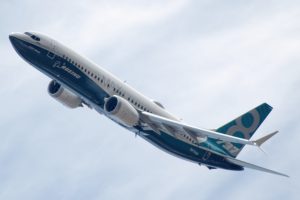The U.S. Department of Transportation Office of the Inspector General has been asked by two U.S. lawmakers to review the Federal Aviation Administration’s (FAA) oversight over Boeing Co’s actions surrounding the 737 MAX jet.
Peter DeFazio, the chair of the House of Representatives Transportation Committee, and Rick Larsen, who chairs a subcommittee on aviation, said the two lawmakers made the request after the FAA was not able to provide an adequate response to a November letter seeking answers about the actions of Boeing before two Boeing 737 MAX crashes in five months. The crashes killed 346 people and led to the plane's 20-month grounding.
Boeing declined to comment on the matter, and the FAA did not immediately comment.
In January 2021, Boeing agreed to the payment of $2.5 billion in fines and compensation stemming from the 737 MAX crashes as part of a deferred prosecution agreement with the Department of Justice. In early February, the DoJ defended the agreement over objections from some relatives of the victims.
According to FAA Administrator Steve Dickson in a letter on January 24, because of the DoJ investigation and work by other reviews, the "FAA did not pursue investigations or actions against individuals within the Boeing Company.” In November, the lawmakers asked the FAA what it had done, if it had done anything at all, to hold Boeing employees responsible for actions in connection with the MAX.
A former Boeing chief technical pilot was charged with fraud in October for allegedly misleading federal regulators evaluating the Boeing’s 737 MAX jet. However, the pilot has pleaded not guilty. That same month, DeFazio criticized the FAA’s focus on a single technical pilot, saying, "Senior leaders throughout Boeing are responsible for the culture of concealment that ultimately led to the 737 MAX crashes and the death of 346 innocent people."
Among the issues cited by the lawmakers were Boeing's apparent violation of its approved 737 MAX type design, as well as evidence of an internal plan to downplay the importance of a key safety system called MCAS that has been tied to both fatal crashes.
The FAA is continuing to scrutinize several issues involving Boeing airplanes.






















